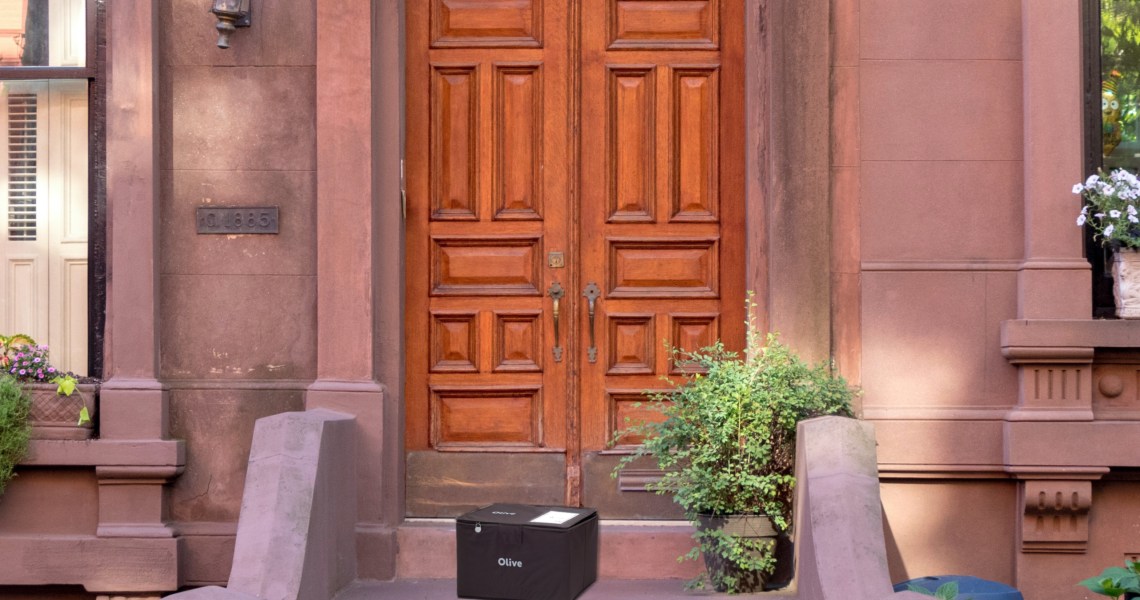Rebecca Minkoff, EB Denim and Rent the Runway are turning to services like package tracker Route and logistics company Olive for more sustainable shipping and packaging solutions.
Route announced it’s partnering with fashion-brand clients Rebecca Minkoff, EB Denim and Logan Hollowell on its Green Package Protection, announced Thursday. In total, 4,700 brands are on board. Through the program, Route offsets shipping emissions and provides a seamless post-purchase experience for customers with integrated AI tracking parcels from retailer to customer.
Route is working with carbon-neutral partner Patch to offset emissions through a long-term tree planting project in Brazil. Customers of Green Package Protection partners can opt-in at checkout with select brands at no extra fee. Route was founded three years ago to provide more secure and traceable shipping and tracking services for small businesses. Now, with the Green Package Protection, Route is targeting fashion brands.
Rebecca Minkoff hopes this partnership plays into the brand’s authenticity around new initiatives. “Off the heels of [debuting our spring 2023] collection, which was crafted with responsibly sourced materials, it is important for us to continue that initiative and provide our customers the option to offset their carbon emissions while shopping online,” she said.
Smaller brands like EB Denim are also working with Route. EB Denim produces an upcycled collection, as well as a line of denim, and aimed to offer a post-purchase customer experience in line with its sustainable messaging.
“There’s a fine line between greenwashing and actually doing the right thing. We want to be sustainable not for marketing purposes, but because it’s just going to be the standard going forward,” said EB Denim founder Elena Bonvicini.
According to Evan Walker, founder and CEO of Route, the company has neutralized 1 million packages since starting beta testing the Green Package Protection in April. “Route has a unique opportunity as an e-commerce platform. We have the ability to step in as a changemaker to create ways for merchants and consumers to shop more consciously and to neutralize carbon from shipping,” said Walker.
There is growing pressure for greener supply chains, including at the post-purchase stage. It has been estimated that all types of shipping account for 2.5% of the global total CO2 emissions. A 2015 report from the European Parliament estimated that the number could rise as high as 17% by 2050. Retrofitting supply chains, including implementing new carbon-negative shipping solutions and packaging options, can be expensive for brands. Services like Route and Olive, the latter of which relaunched this week, allow brands to engage in accessible greener solutions.
U.S. e-commerce sales are on track to hit $1 trillion this year, and customers are increasingly expecting quick, trackable shipping services. While Amazon is still the top contender for shipping speed, Route has earned a large brand base and a $1.25 billion valuation.
E-commerce platform Olive, meanwhile, relaunched on Thursday with a mission of removing single-use packaging waste from e-commerce orders. It partners with retailers to pack, ship and deliver their customers’ orders in reusable packaging.
According to Olive founder Nate Faust, providing a no-cost solution to brands allows both brands and customers to engage in a sustainable economy. Olive is paid by brands for the deliveries and pickups at the same cost range as other logistics providers. Typically, brands would have to pay a fee for a service providing sustainable options for both packaging and takeback.
E-commerce customers of platforms like Rent the Runway and retail brands like menswear company Rhone can use Olive to send back retail returns or unwanted items from their wardrobes. The donated items are then sold by Olive’s consignment concierge service, where the customers can earn up to 80% of the sale price, with the rest going to Olive. To enable this offering, Olive acquired Linda’s Stuff, one of eBay’s largest resellers.
”We are only willing to be more sustainable when it doesn’t cost us anything more or, better yet, when it’s an even better experience than the status quo,” said Faust.




